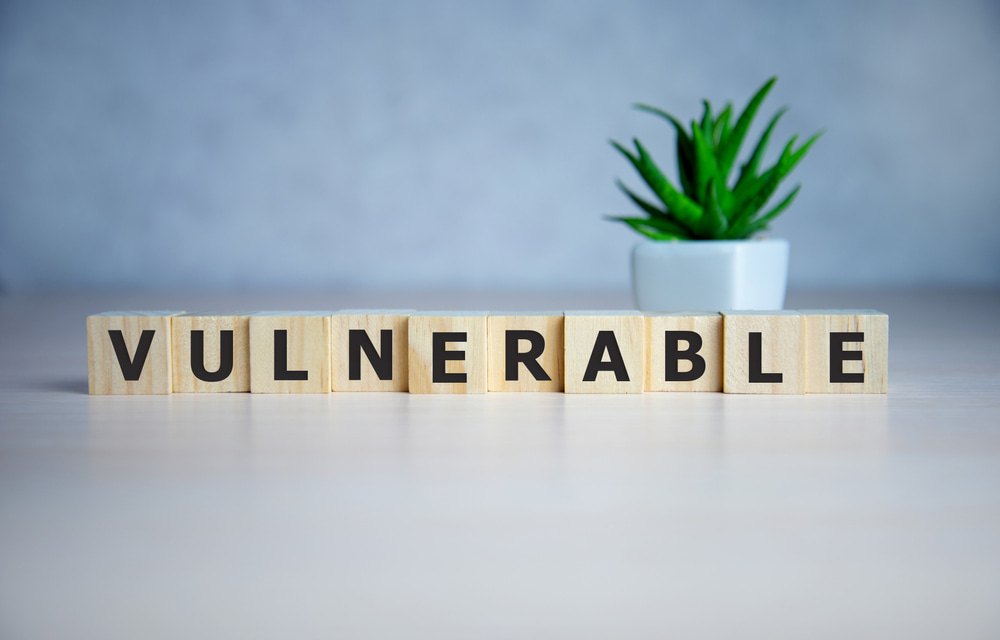Think of a kid throwing a temper tantrum for no apparent reason, or at least not one significant enough to cause such a reaction. The feelings of most adults can be just as overwhelming, and some adults’ use coping mechanisms that can boil down to “sweeping it under the rug.” These folks might’ve outgrown temper tantrums, yet the storms inside them can seem just as overwhelming.
Unlike most children, adults are capable of identifying and managing their emotions. This doesn’t mean merely controlling, suppressing, or hiding them. It means understanding our triggers or the underlying causes of our fears and other distressing feelings. It also means learning what vulnerability management is and then changing our behavior and thought patterns to create optimal conditions for learning to recognize and identify our emotions. That way, we can address the reasons behind them, and change our response and behavior accordingly.
What Is Emotional Regulation?
Emotional regulation encompasses various actions we undertake to control the expression of our feelings. This ability may involve analyzing or rethinking certain challenging situations to influence the intensity of distressing emotions like anxiety or anger. This doesn’t necessarily mean that we succeed in changing our feelings; we simply learn to hide some or all visible signs. And, hiding our emotions can be incredibly unhealthy.
By learning to actually mitigate emotions that are hardest to control, like anger, anxiety, resentment, or deep sadness, we could prevent them from turning into more severe mental health issues. Instead of bottling them up, we can learn how to deal with them in healthier ways that will contribute to our personal well-being and more stable relationships with others.
How Can I Regulate My Emotions?
With a certain amount of practice, we can learn to influence our emotional state or regulate our feelings. Experts in this field use two terms to explain this process: down-regulation and up-regulation. Down-regulation means reducing the intensity of emotions, while up-regulation means amplifying them.
Each of these two ways is used in different circumstances. For example, people usually try to downregulate distressing emotions like sadness, anger, and fear by recalling pleasurable or amusing memories or ideas – thinking about something that makes them calm or happy. This method is used to distract oneself from anxiety or sadness.
In other types of situations, people need to upregulate their emotions or make them more intense. This is more common in situations of imminent danger or other kinds of challenging experiences that require a dose of adrenaline.
The main issue with this type of emotion control is that it’s usually done unconsciously to cope with demanding situations. And all of us do it many times a day. We use various emotion regulation strategies, some of which are harmless, while others can cause damage to our well-being and mental health. To adapt to the environment we live in, the stress we’re exposed to, and the countless emotions we feel throughout the day, we need to approach the situation more strategically.

Which Skills Are Essential For Emotional Management?
To be able to practice emotional management, we have to set up the conditions that allow us to apply positive coping skills and practice emotional and vulnerability management. This task will get easier over time if you make sure to set up the environment by:
- Taking care of your physical needs and paying attention to your physical symptoms. This includes getting enough sleep, eating healthy food, being physically active, and exercising. As a result, you will feel better and healthier, and regulating your mood will become less challenging.
- Understand your developmental parts so you can understand where the deregulating emotions come from. This is helpful so you can be aware of why the feelings are so intense. Let’s say in your childhood you had a father who left you. This will most likely activate the abandonment button that was installed inside of you whenever your partner leaves or threatens to leave. Your reaction can be heightened as a result.
- Including activities that build a sense of achievement into your life. This can be any type of hobby or simply doing one single thing each day that makes you feel content. Sometimes our days are filled with multiple small moments we fail to notice or disregard as irrelevant. Pay attention to things that bring you joy, no matter how small they seem. If you start noticing them, their cumulative effect can increase your positivity.
- Focusing on changing thought patterns instead of changing feelings themselves. This could be a more challenging task. Most of us don’t realize that we can change the way we think about things. The truth is that we can change how we experience certain situations by deconstructing our feelings. That means analyzing what happened and how it led to us feeling a certain way.
For example, think about what made you feel that way when you’re upset. What did you think when the distressing event happened? Try to notice the correlation between your thinking and how those thoughts make you feel.
How Can I Manage My Vulnerability?
The best way to manage your emotions and, by extension, your vulnerability is by acknowledging what the meaning of vulnerability is and adopting certain behaviors that can help you identify your emotions and change the way you think about them and act on them. The essential skills to work on are:
- Making yourself slow down for a moment and take a breath. This creates a space between the trigger and your reaction.
- Taking a moment to notice what you’re feeling. Try to catch your physical reactions and locate the body parts that were ‘woken up’ by the activation. For example, do you feel like you can’t breathe? Is your heart racing? Is your stomach upset? Do you feel a sudden headache or tension in your neck? Are you clenching your fists or grinding your teeth? Our bodies react instinctively and by noticing what you feel and where you feel it you’ll be able to identify the type of emotion you’re experiencing.
- Naming the feeling. After taking the time to notice what you’re feeling, you can now identify it. What would you call the emotion you’re experiencing? Is it sadness, fear, anger, or disappointment? Is it a mixture of feelings? If you’re scared, what are you afraid of? If you can identify your emotions, you’ll also be better equipped to share them with others.
- Accepting it. All the emotions we feel are human and natural. Don’t be ashamed of them or try to resist them. It’s important to accept what you’re feeling and to know it’s perfectly valid. Try to have the same compassion for yourself as you would for others.
- Practicing mindfulness. This might sound confusing, however what it actually means is being aware of the moment and yourself within it. Try to pay attention to what’s happening inside and around you, and to be aware of it as an impartial observer, without judgment.
In time, you’ll be able to keep your composure in distressing situations and respond to them calmly without falling into the trap of overwhelming negative emotions and thought patterns.

Emotion Regulation And Change Behavior Patterns
Learning to understand your emotions and respond to them in a healthy manner is not an impossible task. However overwhelming it may feel in certain moments, emotion regulation and vulnerability management help us identify and understand our feelings, leading to well-being and personal growth. This also allows us to open up to others and share our authentic selves with them, helping us achieve mutual understanding, deeper connections, and solid, healthy relationships.
If you’re struggling to achieve meaningful connection and trust with your friends, family, or partner, allow yourself to escape the overwhelming stress of daily life and devote a few days to self-discovery in one of the intimate Glass House retreats. If you prefer to deal with your vulnerability and emotional management issues in private individual sessions, our experienced relationship advocates will guide you in the right direction and remain at your disposal whenever you need them.




